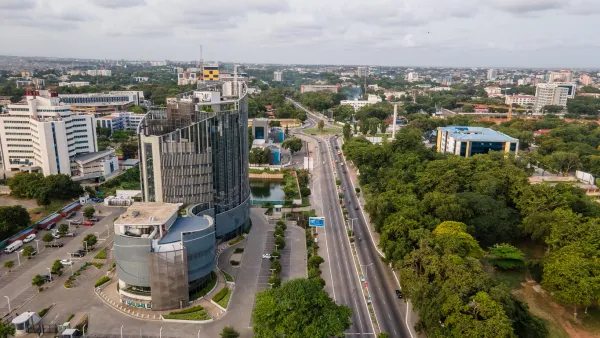The diverse population of residents and visitors in the capital city requires accessible and efficient customer support across various industries. Organizations in Abuja, including government agencies and private companies, are adapting their methods of delivering services to meet these changing needs.
This comprehensive guide for 2025 explores:
- Current customer service trends shaping Abuja's business environment
- Key organizations leading the way in service excellence
- Essential communication channels and support platforms
- Career opportunities in the customer service sector
- Technological innovations enhancing service delivery
- Strategies for overcoming common service challenges
Whether you're a business owner, service professional, or customer seeking support in Abuja, this guide provides actionable insights to navigate the city's customer service ecosystem in 2025.
Understanding Customer Service in Abuja
Customer service in Abuja covers various sectors, creating a wide range of support services for both residents and visitors. The city's service landscape includes :
1. Government Agencies
- Federal ministries with dedicated service desks
- Public utility companies offering 24/7 support
- Emergency response units with direct hotlines
2. Aviation and Transportation
- Airport information centers
- Airline booking assistance
- Transport company help desks
3. Hospitality and Tourism
- Hotel concierge services
- Restaurant customer care
- Tour operator support teams
4. Technology and Telecommunications
- Internet service provider support
- Mobile network customer care
- Tech company help centers
These sectors have their own customer service departments with trained professionals who handle inquiries, complaints, and service requests. Many organizations now use multiple communication channels, allowing customers to contact them through :
- Phone support (toll-free numbers)
- Email correspondence
- Social media platforms
- Live chat services
- Physical help desks
- Mobile apps
- WhatsApp business accounts
By integrating these communication channels, organizations can provide immediate assistance and ensure consistent service delivery across different platforms. Companies in Abuja are increasingly realizing the importance of meeting customers where they are and adapting their service approach to align with changing communication preferences.

Key Players in Abuja's Customer Service Scene
The Federal Airports Authority of Nigeria (FAAN) is a key player in customer service at Nnamdi Azikiwe International Airport. Their dedicated support team is available 24/7 to assist with:
- Flight information
- Lost baggage tracking
- Airport facility guidance
- Security-related inquiries
- Ground transportation coordination
NIPOST's corporate headquarters in Abuja is the main hub for postal service inquiries. Their customer service department handles tracking requests, delivery confirmations, and postal rate information through their integrated call system.

The airline sector has prominent players with established customer service operations:
Arik Air has a comprehensive support structure that includes:
- 24-hour call center
- Live chat support
- Dedicated WhatsApp line
- Social media response team
- In-person service desk at Abuja airport
Ibom Air offers specialized customer care through:
- Automated booking assistance
- Real-time flight status updates
- Baggage claim support
- Priority service for frequent flyers
- Digital check-in assistance
The hospitality sector sets high service standards through Transcorp Hilton Abuja, which provides:
- Personal concierge services
- 24/7 room assistance
- Multi-lingual guest relations team
- Express check-in/check-out
- Customized guest experience programs
These key players show how customer service in Abuja has evolved by using modern technologies and service approaches. Their dedication to customer satisfaction has raised the bar for service delivery, inspiring other organizations to improve their support systems and response capabilities.
The integration of digital platforms with traditional service channels by these major players has transformed how residents and visitors access support services in Abuja. Their service innovations continue to shape customer expectations and industry standards across the capital city.

Communication Channels for Effective Customer Service Delivery in Abuja
Businesses in Abuja have adopted multiple communication channels to meet diverse customer needs. Here's a breakdown of the primary platforms:
1. Phone Support
- Dedicated hotlines for immediate assistance
- Interactive Voice Response (IVR) systems for 24/7 support
- Toll-free numbers for customer convenience
- SMS support for quick queries
2. Email Communication
- Specialized email addresses for different departments
- Automated response systems with ticket tracking
- Document sharing capabilities
- Detailed query handling
3. WhatsApp Business Integration
- Direct messaging through verified business accounts
- Quick response templates for common inquiries
- Media sharing capabilities
- Status updates for service announcements
4. Social Media Platforms
- Real-time engagement through Twitter mentions
- Facebook Messenger support
- Instagram Direct Message assistance
- LinkedIn professional support
Many organizations in Abuja implement a multi-channel approach, allowing customers to switch between platforms seamlessly. The adoption of these varied communication channels has enhanced response times and improved customer satisfaction rates across different sectors.
Local businesses have started integrating chatbots and AI-powered responses to handle basic inquiries, particularly during non-business hours. This technological advancement has significantly improved the accessibility of customer service in Abuja's growing business environment.
Job Opportunities and Career Prospects in Customer Service within Abuja
Abuja's customer service sector presents diverse employment opportunities across multiple industries. The city's status as Nigeria's capital creates a robust job market with positions in both public and private sectors.

Key Employment Sectors
- Banking and Financial Services
- Telecommunications
- Hospitality and Tourism
- E-commerce and Retail
- Government Agencies
- Healthcare Services
Popular Customer Service Roles
- Customer Support Representatives
- Client Relations Managers
- Help Desk Specialists
- Guest Services Coordinators
- Contact Center Supervisors
- Digital Support Agents
The average salary range for customer service positions in Abuja spans from ₦80,000 to ₦250,000 monthly, depending on experience and role specifics. Entry-level positions typically require a bachelor's degree and proficiency in English, while senior roles demand 3-5 years of experience.
Required Skills
- Fluency in English and local languages
- Digital literacy
- Problem-solving abilities
- Communication expertise
- Cultural awareness
- Technical support knowledge
Many organizations provide training programs and career advancement paths. Companies like MTN, Airtel, and major banks offer structured career progression from entry-level positions to team leadership roles. Remote work opportunities have expanded, with companies adopting hybrid models that combine office and home-based customer service positions.
The growing digital economy in Abuja creates new specialized roles in areas like social media customer care and AI-assisted support systems. These positions often offer competitive benefits packages including health insurance, performance bonuses, and professional development opportunities.
Leveraging Technology to Enhance Customer Experience in Abuja's Service Sector
Businesses in Abuja are embracing digital transformation to revolutionize their customer service delivery. The integration of Customer Relationship Management (CRM) systems enables companies to track customer interactions, analyze feedback patterns, and deliver personalized experiences at scale.
Key Technology Solutions Transforming Customer Service:
- AI-powered chatbots handling basic inquiries 24/7
- Cloud-based ticketing systems for efficient issue tracking
- Social media monitoring tools for real-time response
- Mobile apps with self-service capabilities
- Interactive Voice Response (IVR) systems for call routing
Leading banks and telecommunications providers in Abuja have implemented automated messaging systems that send transaction alerts, appointment reminders, and service updates. These systems reduce response times from hours to minutes while maintaining consistent communication with customers.
Digital Tools Adoption Rates:
- WhatsApp Business API: 65% of service providers
- Live Chat Solutions: 48% of businesses
- Mobile Apps: 37% of companies
- AI Chatbots: 25% of enterprises
Local tech startups are developing custom solutions tailored to Abuja's market needs. These include multilingual support features and integration with popular messaging platforms like WhatsApp and Telegram. Companies using these technologies report a 40% increase in customer satisfaction rates and a 30% reduction in support ticket resolution time.
The Federal Capital Territory Administration has launched digital service portals, setting standards for government agencies to modernize their customer service infrastructure. This digital transformation includes online payment systems, document verification platforms, and automated complaint management systems.
Challenges and Opportunities for Improvement in Customer Service Delivery in Abuja
Customer service operations in Abuja face distinct challenges that create opportunities for strategic improvements. Organizations struggle with:
- Extended Response Times
- Peak hour congestion at call centers
- Limited staff availability during high-demand periods
- Delayed email responses due to high inquiry volumes
- Resource Constraints
- Insufficient training budgets for staff development
- Limited access to advanced customer service tools
- Inadequate infrastructure for seamless service delivery
- Communication Barriers
- Language diversity among customers
- Network connectivity issues
- Limited multi-channel support capabilities
These challenges present opportunities for service enhancement through:
- Implementation of AI-powered chatbots for 24/7 support
- Development of comprehensive staff training programs
- Investment in robust telecommunication infrastructure
- Creation of standardized service quality metrics
- Adoption of multilingual support systems
Companies can transform these challenges into competitive advantages by prioritizing customer-centric solutions and embracing innovative service delivery methods. The growing demand for quality service in Abuja creates a fertile ground for organizations willing to invest in service excellence.
Conclusion
The future of customer service in Abuja is at a crucial point. Your business can lead this change by embracing innovative solutions and prioritizing client satisfaction. Here's what you can do right now:
- Implement data-driven feedback systems to track and improve service quality
- Train staff in both traditional and digital communication methods
- Invest in AI-powered tools while maintaining the human touch
- Create personalized experiences that reflect Abuja's diverse customer base
The path to excellence in 2025 requires a commitment to continuous improvement. You'll see tangible results by:
- Reducing response times through automated systems
- Building stronger relationships via personalized interactions
- Developing multi-channel support options
- Creating measurable service standards
Your actions today shape tomorrow's customer service landscape in Abuja. By adopting these best practices, you position your business to meet evolving customer expectations and create lasting relationships with your clients. The opportunity to transform customer service delivery in Abuja lies in your hands - take action now to secure your place in this exciting future.
FAQs (Frequently Asked Questions)
What sectors in Abuja offer customer service and support ?
Abuja's customer service landscape encompasses diverse sectors including government agencies, airlines such as Arik Air and Ibom Air, hospitality establishments like Transcorp Hilton Abuja, and technology companies. Each sector maintains dedicated customer service departments to address resident and visitor needs effectively.
Which are the key customer service providers in Abuja ?
Key players in Abuja's customer service scene include the Federal Airports Authority Nigeria (FAAN) offering airport support, Nigerian Postal Service (NIPOST) corporate headquarters for postal inquiries, airline customer care centers like Arik Air and Ibom Air call centers, and major hotels such as Transcorp Hilton Abuja providing comprehensive guest services.
What communication channels are commonly used for customer service in Abuja ?
Organizations in Abuja utilize multiple communication platforms to ensure effective customer service delivery. These include phone support lines, email inquiries, and WhatsApp business contacts, enabling convenient and multi-channel access for residents and visitors seeking assistance.
What job opportunities exist in the customer service sector in Abuja for 2025 ?
The customer service job market in Abuja is active across various industries including government agencies, airlines, hospitality, and technology sectors. Common positions available involve call center agents, help desk support staff, guest relations officers, and digital customer experience specialists offering promising career prospects.
How is technology enhancing customer experience in Abuja's service sector ?
Technology plays a vital role in improving responsiveness and efficiency in Abuja's customer service through tools like Customer Relationship Management (CRM) systems and automated messaging platforms. These innovations enable organizations to provide timely support and personalized interactions enhancing overall client satisfaction.
What challenges does Abuja face in delivering efficient customer service, and what opportunities exist for improvement ?
Challenges in Nigerian customer service include delayed response times and resource limitations impacting quality of support. However, there are significant opportunities for improvement by adopting best practices such as leveraging digital tools, expanding multi-channel communication options, and investing in staff training to elevate the standard of customer care by 2025.












